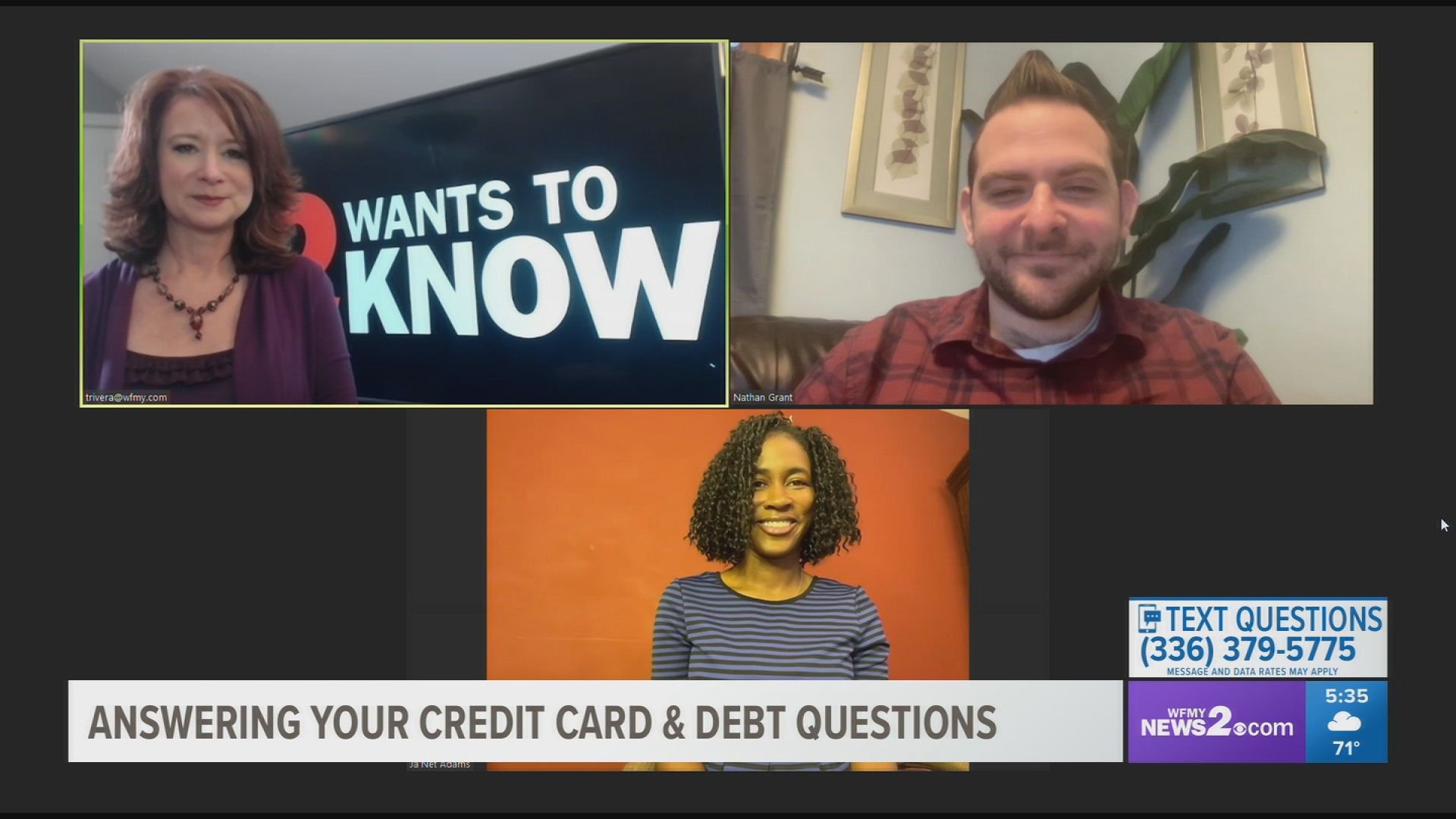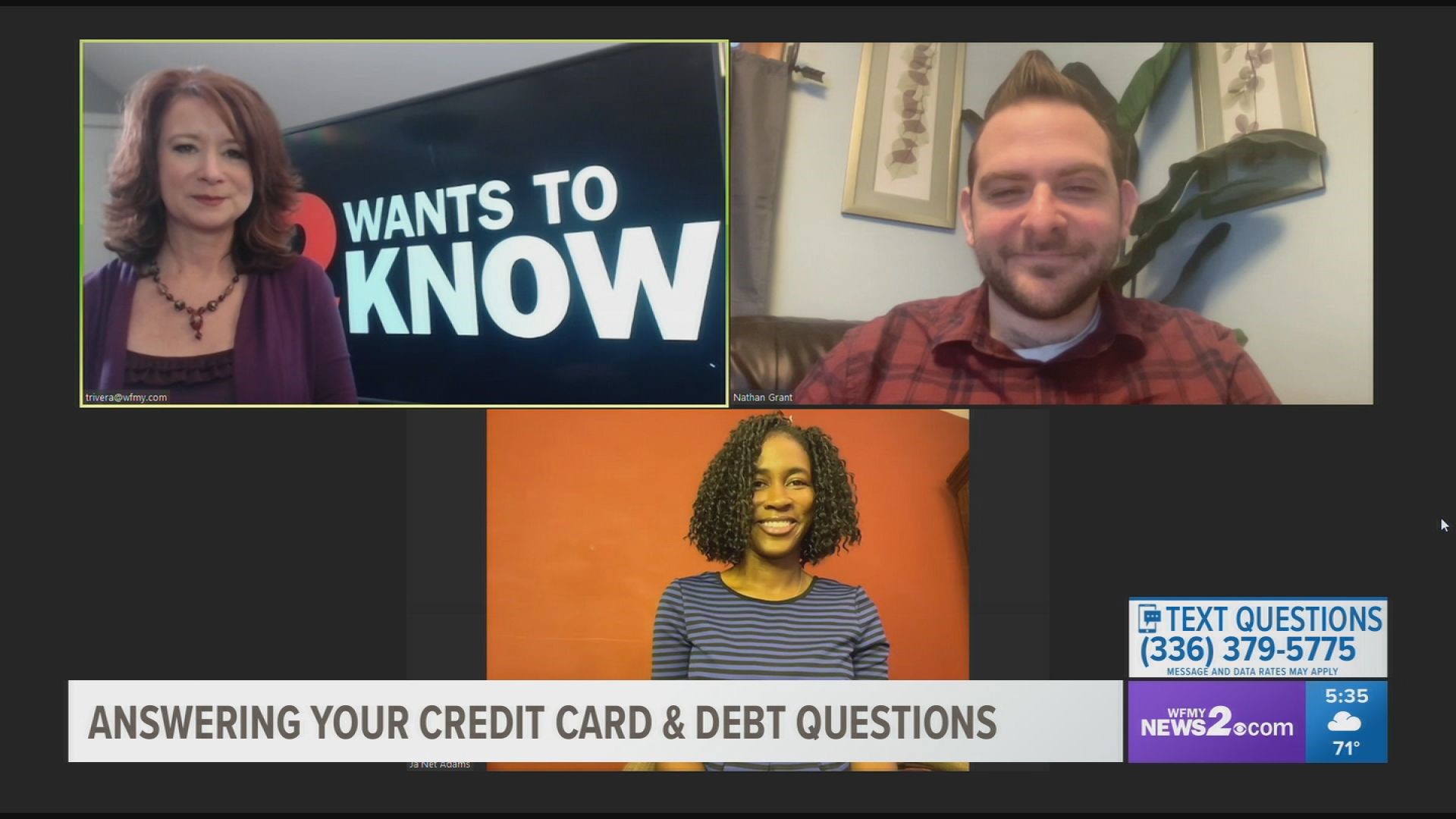GREENSBORO, N.C. — Nathan Grant from Credit Card Insider and Ja'Net Adams, author of Debt Sucks, join us on 2WTK today to answer your questions about money, finances, debt, and credit cards. Text your questions to 336-379-5775.
Credit Repair Guide
What to know about deferred-interest offers.
How often to use a credit card to keep your credit score healthy.
COVID relief from various issuers.
According to the Credit Card Insider article:
And, here’s a little-known fact that’s working for you in the background: Most credit cards come with a grace period for purchases.
A grace period is a time between when your statement period ends and your billing due date. During that period, your purchases from the previous statement won’t accrue interest as long as you’ve been paying your balance in full each month. So again, it’s important to not spend money you don’t have, in order to ensure you’ll be able to clear your balance each and every month.
What to know about store credit cards
Typically, the interest rates on store credit cards are higher than a regular credit card. For example, the APR, annual percentage rate, of a TJ Maxx card is 26.99%. A COSTCO Anywhere VISA card has an APR of 15.24%.
Credit card insider surveyed shoppers to see what payment methods people use most.
57% use credit cards
34% use their debit card
Credit Cards
One of the hardest things for credit card users to overcome is the interest rate on their card. Depending on the card company, those interest rates could be pretty high. But there is a way to bring those interest rates down to zero percent---a balance transfer.
When used responsibly, balance transfers can be a great way to reduce the amount of interest you’re charged as you pay off debt. Meaning, you must make all payments on time. Credit Card Insider has a full list of the cards that a best for a balance transfer.
Remember, it is okay to own multiple credit cards as long as you are able to keep up with them. But after you pay them off, don't close the account because it could negatively affect your credit score.
There are multiple things factored into your credit score. Payment history makes up 35%, amounts owed is 30%, 15% for the length of your credit history, 10% for new credit, and the remaining 10% goes to types of credit used. For example, buying a house or taking out a lease on a new car would be considered new credit.
If you or your child are a college student, a student credit card could help build credit. But remember, just like other cards you must pay them off to build up that credit. You can find a list of student credit cards here.


